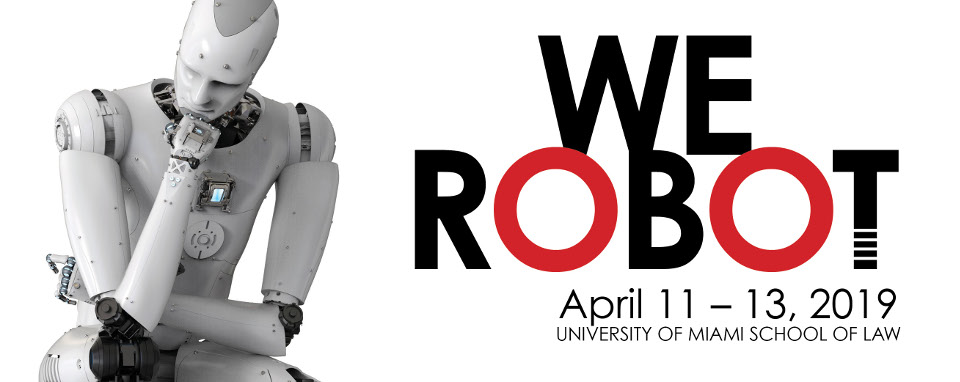
Stephanie Ballard
Stephanie Ballard is a current Ph.D. candidate at the University of Washington in the Information School. Her research is at the intersection of value sensitive design and emerging technology. Specifically, Stephanie designs methods to align technology with human goals and values.
Before starting the Ph.D program, Stephanie completed a Master of Library and Information Science at the UW iSchool. During that time, she completed courses in data science, value sensitive design, design theory, and ethics. It was during these courses that Stephanie took an interest in the interplay of those topics, which prompted her to pursue her Ph.D. in information science. Outside of her research, Stephanie works in the Value Sensitive Design Lab or the Tech Policy Lab, both located at the University of Washington.

Kevin Bankston
Kevin Bankston is the director of New America’s Open Technology Institute, where he works in the public interest to ensure that all communities have equitable access to an internet that is both open and secure. He previously served as OTI’s policy director. Prior to leading OTI’s policy team, Bankston was a senior counsel and the director of the Free Expression Project at the Center for Democracy & Technology, a Washington, D.C.-based non-profit organization dedicated to promoting democratic values and constitutional liberties in the digital age. From that position, he spent two years advocating on a wide range of internet and technology policy issues both international and domestic, most recently organizing a broad coalition of companies and civil society organizations to demand greater transparency around the U.S. government’s surveillance practices. He also has served since 2005 on the board of the First Amendment Coalition, a non-profit public interest organization dedicated to advancing free speech and a more open and accountable government, and previously was a nonresidential fellow at the Stanford Law School’s Center for Internet & Society. Prior to joining CDT, he worked for nearly a decade at the Electronic Frontier Foundation, specializing in free speech and privacy law with a focus on government surveillance, internet privacy, and location privacy. As a senior staff attorney at EFF, he regularly litigated issues surrounding free expression and electronic surveillance, and was a lead counsel in EFF’s lawsuits against the National Security Agency and AT&T, challenging the legality of the NSA warrantless wiretapping program first revealed in 2005. He originally joined EFF as an Equal Justice Works/Bruce J. Ennis First Amendment Fellow, studying the impact of post-9/11 anti-terrorism surveillance initiatives on online privacy and free expression. Before joining EFF, he litigated internet-related free speech cases at the national office of the American Civil Liberties Union in New York City as a Justice William Brennan First Amendment Fellow. He received his JD at the University of Southern California Law School after receiving his BA at the University of Texas at Austin.

Solon Barocas
Solon Barocas is a Researcher in the New York City lab of Microsoft Research and an Assistant Professor in the Department of Information Science at Cornell University. Additionally, he is an Associate at the Berkman Klein Center for Internet & Society at Harvard University. His current research explores ethical and policy issues in artificial intelligence, particularly fairness in machine learning, methods for bringing accountability to automated decision-making, and the privacy implications of inference.
</br />Dr. Barocas co-founded the annual workshop on Fairness, Accountability, and Transparency in Machine Learning(FAT/ML) and later established the ACM conference on Fairness, Accountability, and Transparency (FAT*). Previously, he was a Postdoctoral Researcher at Microsoft Research, where he worked with the Fairness, Accountability, Transparency, and Ethics in the AI group, as well as a Postdoctoral Research Associate at the Center for Information Technology Policy at Princeton University. Dr. Barocas completed his doctorate in the Department of Media, Culture, and Communication at New York University, where he remained a Visiting Scholar at the Center for Urban Science + Progress.
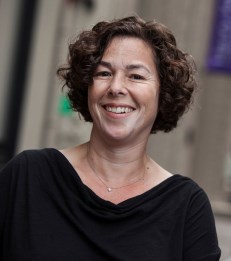
Beth Bechky
Beth Bechky joined New York University Stern School of Business in July 2013 as a Professor of Management and Organizations with a courtesy appointment in NYU’s Department of Sociology. She teaches courses in managing high performance teams and negotiations. Professor Bechky is an ethnographer who studies interactions and dynamics at organizational and occupational boundaries. She is interested in how workers collaborate to solve problems, coordinate their activities, respond to surprises and innovate. She has published her work in journals such as Administrative Science Quarterly, Academy of Management Journal, Organization Science and American Journal of Sociology.
Professor Bechky is the co-editor of Qualitative Organizational Research and was formerly a senior editor at Organization Science. She was on the council of the Organization, Occupations and Work division of the American Sociological Association from 2009-2012. Prior to joining NYU Stern, Professor Bechky held professorial positions at The Wharton School at the University of Pennsylvania and the Graduate School of Management at the University of California Davis. Professor Bechky received a B.S. (with Honors) from the School of Industrial and Labor Relations at Cornell University, and an M.A. in Sociology and a Ph.D. in Industrial Engineering and Engineering Management from Stanford University.

Marta Bo
Dr. Marta Bo is a postdoctoral researcher at the Graduate Institute for International and Development Studies. She is also a researcher at the Asser Institute (The Hague) and member of the board of the Antonio Cassese Initiative. For the Antonio Cassese Initiative, Marta has developed, coordinated and implemented capacity-building and training projects in international and transnational criminal law, international humanitarian law and human rights law.
As an experienced lawyer, Marta has acquired various work experience in international criminal tribunals (ICC and ICTY) and NGOs (International Bar Association’s Human Rights Institute, Peace and Justice Initiative and Antonio Cassese Initiative). She holds a Master’s degree in Law from the University of Bologna and an LL.M. in Public International Law from the University of Leiden. In 2015, she completed her Ph.D in International Law at the University of Genova. Marta’s areas of expertise include international and transnational criminal law, international criminal procedure, human rights, and artificial intelligence and criminal responsibility.
Marta has lectured at several universities, including the University of Amsterdam, the University of Pavia and Bocconi University (Milan). She has published on international and transnational criminal law, law of the sea and human rights. Her current research focuses on criminal responsibility for war crimes committed with the use of autonomous weapon systems (LAWS and War Crimes Project).

Ryan Calo
Ryan Calo is the Lane Powell and D. Wayne Gittinger Associate Professor at the University of Washington School of Law. He is a faculty co-director (with Batya Friedman and Tadayoshi Kohno) of the University of Washington Tech Policy Lab, a unique, interdisciplinary research unit that spans the School of Law, Information School, and Paul G. Allen School of Computer Science and Engineering. Professor Calo holds courtesy appointments at the University of Washington Information School and the Oregon State University School of Mechanical, Industrial, and Manufacturing Engineering.
Professor Calo’s research on law and emerging technology appears or is forthcoming in leading law reviews (California Law Review, University of Chicago Law Review, and Columbia Law Review) and technical publications (MIT Press, Nature, Artificial Intelligence) and is frequently referenced by the mainstream media (NPR, New York Times, Wall Street Journal). Professor Calo has testified before the full Judiciary and Commerce Committees of the United States Senate and the German Parliament and has organized events on behalf of the National Science Foundation, the National Academy of Sciences, and the Obama White House. He has been a speaker at the President Obama’s Frontiers Conference, the Aspen Ideas Festival, and NPR‘s Weekend in Washington. Business Insidernamed him one of the most influential people in robotics.
Professor Calo is a board member of the R Street Institute and an affiliate scholar at the Stanford Law School Center for Internet and Society (CIS), where he was a research fellow, and the Yale Law School Information Society Project (ISP). He serves on numerous advisory boards and steering committees, including University of California’s People and Robots Initiative, the AI Now Initiative at NYU, the Conference on Fairness, Accountability, and Transparency (FAT*), Privacy Law Scholars Conference, the Electronic Frontier Foundation (EFF), the Electronic Privacy Information Center (EPIC), Without My Consent, the Foundation for Responsible Robotics, and the Future of Privacy Forum. In 2011, Professor Calo co-founded the annual robotics law and policy conference We Robot with Michael Froomkin and Ian Kerr.

Howard Chizeck
Howard Jay Chizeck received his B.S and M.S. degrees from Case Western Reserve University, and the Sc.D. degree in Electrical Engineering and Computer Science from the Massachusetts Institute of Technology in 1982. He has been a faculty member and Department Chair at two major research universities – in a small department at a private university and in a large department at a public university. From 1981 until 1998 he was at Case Western Reserve University in Cleveland, serving as Chair of the Department of Systems, Control and Industrial Engineering from 1995 – 1998. He was the Chair of the Electrical & Computer Engineering Department at the University of Washington in Seattle from August 1998- September 2003. During that time the department experienced a period of dramatic and positive change. Both the undergraduate and graduate programs grew in quality, size and national rankings. Research activity and funding rapidly increased, from ($5.0M new grants/$6M expenditures) in 1998-1999 to approximately ($20M new grants/$15M expenditures) in both 2001-2002 and 2002-2003. External recognition of the departmental improvement, in terms of the US News and World Report rankings, improved (undergraduate and graduate) from the high 20’s to the mid-teens.
Currently, he is a Professor of Electrical & Computer Engineering and Adjunct Professor of Bioengineering at the University of Washington. Professor Chizeck is a research thrust leader for the NSF Engineering Research Center for Sensorimotor Neural Engineering and also co-director of the UW BioRobotics Laboratory. His research interests are in telerobotics and neural engineering. His telerobotic research includes haptic navigation and control for robotic surgery and for underwater devices, as well as security of telerobotic systems.. His neural engineering work involves the design and security of brain-machine interfaces, and the development of assistive devices to restore hand and locomotion capabilities.
Professor Chizeck was elected a Fellow of the IEEE in 1999 “for contributions to the use of control system theory in biomedical engineering” and he was elected to the American Institute for Medical and Biological Engineering (AIMBE) College of Fellows in 2011 for “contributions to the use of control system theory in functional electrical stimulation assisted walking.” From 2008-2012 he was a member of the Science Technology Advisory Panel of The Johns Hopkins Applied Physics Laboratory. Professor Chizeck currently serves on the Visiting Committee of the Case School of Engineering (Case Western Reserve University). He has been involved with several start-up companies. He is a founder and member of the Board of Directors of Controlsoft Inc (Ohio) and also is a founder and Chair of the Board of Directors of BluHaptics, Inc., which was established in 2013 to commercialize haptic rendering, haptic navigation and other UW telerobotic technologies.

Bryan Choi
Professor Bryan H. Choi is jointly appointed with the College of Law and the Department of Computer Science and Engineering. His research focuses on the legal regulation of ubiquitous computing and ubiquitous data. In particular, his work investigates how cyber systems disrupt legal systems, and in turn how legal constraints can channel and elevate the development of cyber systems.
Professor Choi’s current work explores the interaction between the tort liability regime and cyberphysical systems such as self-driving cars. He has also written about data privacy through a series of lenses including criminal procedure (“For Whom the Data Tolls,” published in the Cardozo Law Review); intellectual property (“A Prospect Theory of Privacy”, published in the Idaho Law Review); and anonymity (“The Anonymous Internet,” published in the Maryland Law Review).
Prior to joining Ohio State, Professor Choi was a Faculty Fellow at the Center for Technology, Innovation and Competition (CTIC) at the University of Pennsylvania Law School. Before that, he taught at New York Law School, and served as the Director of Law and Media at the Information Society Project (ISP) at Yale Law School.
Professor Choi received his undergraduate degree in Computer Science from Harvard University and his law degree from Harvard Law School. Before law school, he worked as a software developer on Army Knowledge Online, the largest social media platform before Facebook. Following law school, he practiced law at a firm in Washington, D.C., and clerked for the Honorable Leonard I. Garth of the U.S. Court of Appeals for the Third Circuit and for the Honorable William C. Bryson of the U.S. Court of Appeals for the Federal Circuit.

Carys Craig
Dr. Carys Craig joined Osgoode Hall Law School in 2002 and currently is the Academic Director of the Osgoode Professional Development LLM Program in Intellectual Property Law. Additionally, Dr. Craig is a founding member of IP Osgoode (an Intellectual Property Law & Technology Program) and previously served as an Associate Dean. This past year, she completed the MacCormick Research Fellowship at the University of Edinburgh in Scotland. Dr. Craig is an award-winning professor, and her courses span across intellectual property, copyright, and trademark law, as well as legal theory. Dr. Craig’s research is widely on intellectual property law and policy, with an emphasis on authorship, users’ rights and the public domain. Her publications can be found here
Kate Darling
Dr. Kate Darling is a leading expert in Robot Ethics. She’s a researcher at the Massachusetts Institute of Technology (MIT) Media Lab, where she investigates social robotics and conducts experimental studies on human-robot interaction.
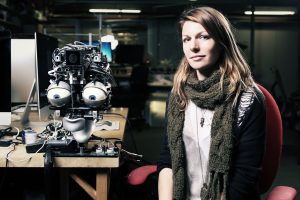 Kate explores the emotional connection between people and life-like machines, seeking to influence technology design and policy direction. Her writing and research anticipate difficult questions that lawmakers, engineers, and the wider public will need to address as human-robot relationships evolve in the coming decades.
Kate explores the emotional connection between people and life-like machines, seeking to influence technology design and policy direction. Her writing and research anticipate difficult questions that lawmakers, engineers, and the wider public will need to address as human-robot relationships evolve in the coming decades.
Forever interested in how technology intersects with society, Kate has a background in law & economics and intellectual property. She has researched economic incentives in copyright and patent systems and has taken a role as intellectual property expert at multiple academic and private institutions. She currently serves as intellectual property policy advisor to the director of the MIT Media Lab.
Her passion for technology and robots has led her to interdisciplinary fields. After co-teaching a robot ethics course at Harvard Law School with Professor Lawrence Lessig, she increasingly works at the intersection of law and robotics, with a focus on legal and social issues. Kate is a former Fellow and current Affiliate at the Harvard Berkman Klein Center for Internet & Society and a former fellow at the Yale Information Society Project, and is also an affiliate at the Institute for Ethics and Emerging Technologies. Kate’s work has been featured in Vogue, The New Yorker, The Guardian, BBC, NPR, PBS, The Boston Globe, Forbes, CBC, WIRED, Boston Magazine, The Atlantic, Slate, Die Zeit, The Japan Times, and more. She is a contributing writer to Robohub and IEEE Spectrum and speaks and holds workshops covering some of the more interesting developments in the world of robotics, and where we might find ourselves in the future.
Kate graduated from law school with honors and holds a doctorate of sciences from the Swiss Federal Institute of Technology (ETH Zurich) and an honorary doctorate of sciences from Middlebury College. In 2017, the American Bar Association honored her legal work with the Mark T. Banner award in Intellectual Property. She is the caretaker for several domestic robots, including her Pleos Yochai, Peter, and Mr. Spaghetti.

Tabrez Ebrahim
Tabrez Ebrahim is an Associate Professor of Law at California Western School of Law in San Diego. Professor Ebrahim writes, teaches, and consults in the areas of patent law, entrepreneurship/innovation, and business ethics. His research and professional experience has focused on the intersection of law, business, and emerging technologies (including artificial intelligence, cleantech and sustainability, and 3D printing). You can view his SSRN page here.
Additionally, Professor Ebrahim received the Thomas Edison Innovation Fellowship from the Center for the Protection of Intellectual Property at George Mason University Antonin Scalia Law School and a Core Fulbright U.S. Scholar Program award to the Middle East region. Professor Ebrahim has been a Visiting Research Fellow at Bournemouth University’s Centre for Intellectual Property Policy & Management in England and is a registered U.S. patent attorney.
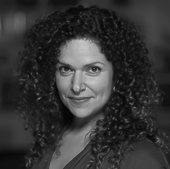
Madeleine Elish
M.C. Elish is a cultural anthropologist whose work examines the social impacts of AI and automation on society. As Research Lead and co-founder of the AI on the Ground Initiative at Data & Society, she works to inform the ethical design, use, and governance of AI systems through the application of social science research and human-centered ethnographic perspectives. Her recent research has focused on how AI technologies affect understandings of equity, values and ethical norms and how professional work lives change in response. She has conducted field work across varied industries and communities, ranging from the Air Force, civilian drone regulation, and commercial aviation to precision agriculture and emergency clinical care. Her research has been published and cited in scholarly journals as well as publications including The New York Times, Slate, Vice, and USA Today. She holds a PhD in Anthropology from Columbia University and an S.M. in Comparative Media Studies from MIT.
 Jessica Fjeld
Jessica Fjeld
Jessica Fjeld is a Lecturer on Law at Harvard Law School and the Assistant Director of the Cyberlaw Clinic at the Berkman Klein Center for Internet & Society. She focuses her legal practice on issues impacting digital media and art including intellectual property; freedom of expression, privacy, and related human rights issues; contract; and corporate law. Recently, she has emphasized work with AI-generated art, the overlap of existing rights and ethics frameworks on emerging technologies, and legal issues confronted by digital archives. She is a member of the board of the Global Network Initiative, a multistakeholder organization the protects and advances user freedom of expression and privacy around the world.
Before joining the Clinic, Jessica worked in Business & Legal Affairs for WGBH Educational Foundation, where she advised the American Archive of Public Broadcasting along with numerous WGBH productions. She began her legal career as an associate at Skadden, Arps, Slate, Meagher & Flom LLP focused in corporate transactions. Jessica is also a poet, the author of Redwork (BOAAT Press, 2018), and the recipient of awards from the Poetry Society of America and the 92nd Street Y/Boston Review Discovery committee. She holds a JD from Columbia Law School, where she was a Hamilton Fellow, James Kent Scholar and Managing Editor of the Journal of Law and the Arts; an MFA in Poetry from the University of Massachusetts; and a BA from Columbia University.

A. Michael Froomkin
A. Michael Froomkin is the Laurie Silvers & Mitchell Rubenstein Distinguished Professor of Law at the University of Miami in Coral Gables, Florida. Recent work on technology law includes articles on AI and medicine, on drones, and many articles about law and the Internet, and on technology and privacy. He is a co-editor, along with Ryan Calo and Ian Kerr, of a book on Robot Law.
He is the founder and editor of the online law review Jotwell, The Journal of Things We Like (Lots). He is a founder (2012) and this year’s Chair of the We Robot conference. He serves on the Advisory Boards of several organizations including the Electronic Frontier Foundation and the Electronic Privacy Information Center. Professor Froomkin is a member of the Royal Institute of International Affairs in London, and a non-resident Fellow of the Yale Law School Information Society Project. He is also active in technology-related projects in the greater Miami area. Professor Froomkin’s publications are listed at http://law.tm/#pubs.
Before entering teaching, Professor Froomkin practiced international arbitration law in the London office of Wilmer, Cutler & Pickering. He clerked for Judge Stephen F. Williams of the U.S. Court of Appeals, D.C. Circuit, and Chief Judge John F. Grady of the U.S. District Court, Northern District of Illinois. Professor Froomkin received his J.D. from Yale Law School, where he served as Articles Editor of both the Yale Law Journal and the Yale Journal of International Law. He has an M.Phil in History of International Relations from Cambridge University in England, which he obtained while on a Mellon Fellowship. His B.A. from Yale was in Economics and History, summa cum laude, phi beta kappa with Distinction in History. Professor Froomkin is married to University of Miami Law Professor Caroline Bradley.

Jake Goldenfein
Jake Goldenfein is a law and technology scholar interested in the emerging structures of governance in computational society. He completed a PhD at Melbourne Law School (University of Melbourne) and has been a lecturer at Swinburne Law School since 2016. His research addresses: surveillance, automation and identity; law in cyber-physical systems; platform law and governance; the role of standards in law- making; distributed ledgers and intellectual property; media history and theory; and legal theory in the context of mega-computation. Jake is a board member of the world’s oldest privacy advocacy organisation (Australian Privacy Foundation) and is admitted to practice law in the Supreme Court of Victoria. His upcoming book ‘Monitoring Laws: Surveillance, Automation and Information Law’ will be published by Cambridge University Press in 2019.

Cindy Grimm
Cindy Grimm is an Associate Professor in the School of Mechanical, Industrial, and Manufacturing Engineering at Oregon State University, where she is affiliated with the Robotics group, Human-Centered computing, and Graphics and Visualization. Previously, Cindy was an Associate Professor in the Department of Computer Science and Engineering at Washington University in St. Louis. Cindy’s background is in computer science, specifically computer graphics and surface modeling. However, over the years she has delved into human computer interfaces, surface modeling for biological applications, bat sonar, art-based rendering, 3D sketching, and understanding how people perform 3D segmentation of volumetric data.
Currently, Dr. Grimm is currently working in the areas of computer graphics and human–computer interaction, including the relationship between shape and biological function, design of interfaces for manipulating and annotating 3D images, and artistic-based modeling and visualization. Further, her research interests include robot grasping, privacy in robotics, meaningful human control for autonomous systems through a law lens, spatial understandings of cross-sections in MRI’s, and the implementation/development of bat sonar technology in robots.
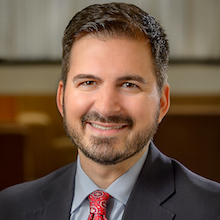
Woodrow Hartzog
Professor Hartzog joined the faculty of the School of Law in 2017 and holds a joint appointment with the Khoury College of Computer Sciences, where he teaches privacy and data protection issues. His research focuses on the complex problems that arise when personal information is collected by powerful new technologies, stored and disclosed online.
Professor Hartzog’s work has been published in numerous scholarly publications such as the Yale Law Journal, Columbia Law Review, California Law Review and Michigan Law Review, and popular national publications such as The Guardian, WIRED, BBC, CNN, Bloomberg, New Scientist, Slate, The Atlantic and The Nation. He has testified twice before Congress on data protection issues. His book, Privacy’s Blueprint: The Battle to Control the Design of New Technologies (Harvard University Press, 2018), has been called “one of the most important books about privacy in our times.”
Prior to joining the Northeastern faculty, Professor Hartzog was the Starnes Professor of Law at Samford University’s Cumberland School of Law. He has also served as a visiting professor at Notre Dame Law School and the University of Maine School of Law. Professor Hartzog previously worked as an attorney in private practice and as a trademark attorney for the US Patent and Trademark Office. He also served as a clerk for the Electronic Privacy Information Center. He holds a PhD in mass communication from the University of North Carolina at Chapel Hill, an LLM in intellectual property from the George Washington University Law School and a JD from Samford University.
 Lucas Hernández
Lucas Hernández
Lucas Hernández directs Microsoft’s civic engagement and philanthropic work in Miami as part of the company’s Technology & Corporate Responsibility Cities team. Lucas has a background spanning the public, philanthropic and nonprofit sectors. Most recently serving as the Director of Civic and Philanthropic Impact for Democracy Works he led the organization’s partnerships in support of a vision to make voting a simple, seamless experience for all Americans. Prior to Democracy Works Lucas worked at as right hand to the CEO at Knight Foundation where he managed the final review of over 150 grants totaling $140 million annually, among others strategic work spanning civic technology, journalism and the arts. Prior to Knight, he worked for the City of New York supporting entrepreneurs to start, operate and expand their businesses within the five boroughs. Locally in Miami he is an active advocate for more ethical and inclusive civic applications of technology; volunteering his time with such organizations as Catalyst Miami, Guardian ad Litem and Lotus House Women’s Shelter.

Abby Everett Jaques
Abby Everett Jaques is a postdoctoral associate in MIT’s Philosophy department, where she earned her Ph.D. She mainly teaches bioethics and ethics of technology. She serves as the Ethics of AI Project Lead for the MIT Quest for Intelligence, a co-organizer of MIT’s Computational Cultures initiative, and a Research Fellow in Digital Ethics at the Jain Family Institute, a think tank in New York. Her research is primarily in the ethics and politics of technology. In her own words, it “concerns the nature of agency and its upshots for moral, political, and epistemological theorizing, and lately I’m particularly interested in how those areas intersect with questions about technology. Abby’s interest in AI stems from her hope to help society to figure out what to do about AI before AI decides itself.

Colin P. Jones
Colin Jones is the founder of LexDox Japan, a Japan-focused legal documentation translation and consulting service. He is a graduate of UC Berkeley, where he studied Oriental Languages and Literature. Mr. Jones also has an LL.M. from Tohoku University in Sendai, as well as a J.D. and LLM. From Duke University. Additionally, he is admitted to the bars in New York, Guam, and the Republic of Palau. In Japan, Mr. Jones has extensive experience not only as a practitioner, but as an academic. While his work is broad, he focuses on many aspects of Japanese law, Anglo-American Law, and comparative law. He has numerous publications in both English and Japanese, including “Law of the Land”, his monthly column on Japanese law that appears in the Japan Times, the country’s leading English language newspaper. Within the field of Japanese law he has devoted significant time to family law, particularly child abduction, child custody, visitation and the Hague Convention, subjects that he has written about extensively in both Japanese and English. His 2011 book on the subject (in Japanese) was distributed to Japanese parliamentaries as part of a family law reform lobbying effort. He has consulted on a number of international child abduction cases in Japan and served as an expert witness.
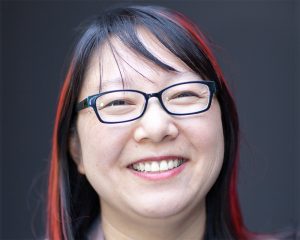
Wendy Ju
Wendy Ju is an Assistant Professor at the Jacobs Technion-Cornell Institute at Cornell Tech and in the Information Science field at Cornell University. Dr. Ju comes to Cornell Tech from the Center for Design Research at Stanford University, where she was Executive Director of Interaction Design Research, and from the California College of the Arts, where she was an Associate Professor of Interaction Design in the Design MFA program. Her work in the areas of human-robot interaction and automated vehicle interfaces highlights the ways that interactive devices can communicate and engage people without interrupting or intruding. Dr. Ju has innovated numerous methods for early-stage prototyping of automated systems to understand how people will respond to systems before the systems are built. She has a PhD in Mechanical Engineering from Stanford, and a Master’s in Media Arts and Sciences from MIT. Her monograph on The Design of Implicit Interactions was published in 2015.

George Kantor
George Kantor is a researcher and educator at the Robotics Institute at Carnegie Mellon University. His technical interests lie in position estimation and mapping for mobile robots, control of robotic systems with nontrivial dynamics, and wireless networks for distributed sensing and control. His work translates ideas related to these technical interests into rugged systems that reliably solve real-world problems, especially in the application areas of agriculture and mining. He develops experimental robotic systems that demonstrate novel concepts, develops theoretical advances for problems in robot estimation and control, and disseminates knowledge through teaching and outreach. He is dedicated to K-12 STEM educational outreach activities. He directs several STEM educational activities, and he is the co-founder and lead mentor of the Girls of Steel, an all-girls FIRST Robotics Competition team. He is currently leading an initiative to create a regional center to host a broad range of informal robotics education activities for all ages.
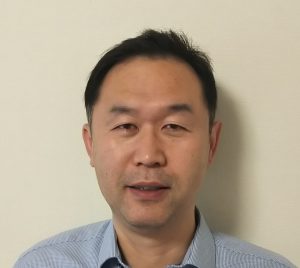
Takayuki Kato
Dr. Takayuki KATO is a Professor of Law at Asia University in Tokyo. He gained a PhD degree at Chuo University where he started a study of law. His thesis focused on the constitutionality of the restriction of sexually explicit expression in Japan with reference to the arguments in the UK and the US.
Although most of his career has been pursed in academia, he worked as an expert officer for nearly two years (2018-2019) at the personal information office of Cabinet Office and Consumer Affairs Agency of the Japanese Government. He taught the module “Privacy and Data Protection” in MA course at Trinity College, Dublin while he was serving as a visiting professor from 2015 to 2016. He is currently an expert member of OECD Privacy Guidelines Expert Group and lectures at Chuo University.
His areas of academic interest are constitutional law, privacy law, jurisprudence and administrative law. He has many publications on those areas.
Ian Kerr
Ian Kerr, one of the founding organizers of We Robot, holds the Canada Research Chair in Ethics, Law & Technology at the University of Ottawa, Faculty of Law, with cross appointments to the Faculty of Medicine, Department of Philosophy and School of Information Studies.He has published books and articles on topics at the intersection of ethics, law and technology and is currently engaged in research on two broad themes: (i) Privacy and Surveillance; and (ii) Human-Machine Mergers. Building on his prior Oxford University Press book, Lessons from the Identity Trail, his ongoing privacy work focuses on the interplay between emerging public and private sector surveillance technologies, civil liberties and human rights. His more recent work, including his book, Robot Law (with Ryan Calo and Michael Froomkin), focuses on legal and ethical implications of AI, robotics and implantable devices.
 Dr. Kerr’s research has attracted eight million dollars in support from the Canada’s Tri-Council, including recent funding for his work on AI, robotics, artificial organs and medical enhancement devices. He is the co-director of the Canada Research Chair Laboratory in Law and Technology, a facility supporting the work of 40 researchers. His devotion to teaching has earned him seven awards and citations, including the Bank of Nova Scotia Award of Excellence in Undergraduate Teaching, the University of Western Ontario, Faculty of Graduate Studies, Award of Teaching Excellence, and the University of Ottawa AEECLSS, Teaching Excellence Award. His courses—Building Better Humans? and The Laws of Robotics—have garnered international attention, with regular invitations to lecture and teach at prestigious institutions across North America, Europe, the Middle East and Asia. Dr. Kerr is co-author of Managing the Law: The Legal Aspects of Doing Business, a business law text published by Pearson Education and used by thousands of students each year at universities across Canada.
Dr. Kerr’s research has attracted eight million dollars in support from the Canada’s Tri-Council, including recent funding for his work on AI, robotics, artificial organs and medical enhancement devices. He is the co-director of the Canada Research Chair Laboratory in Law and Technology, a facility supporting the work of 40 researchers. His devotion to teaching has earned him seven awards and citations, including the Bank of Nova Scotia Award of Excellence in Undergraduate Teaching, the University of Western Ontario, Faculty of Graduate Studies, Award of Teaching Excellence, and the University of Ottawa AEECLSS, Teaching Excellence Award. His courses—Building Better Humans? and The Laws of Robotics—have garnered international attention, with regular invitations to lecture and teach at prestigious institutions across North America, Europe, the Middle East and Asia. Dr. Kerr is co-author of Managing the Law: The Legal Aspects of Doing Business, a business law text published by Pearson Education and used by thousands of students each year at universities across Canada.

Daniel Kluttz
Daniel Kluttz is a Postdoctoral Scholar at the UC Berkeley School of Information. There, he helps organize and lead the Algorithmic Fairness and Opacity Working Group (AFOG), an interdisciplinary working group that brings together UC Berkeley faculty, postdocs, and Bay Area technology professionals to develop research and policy recommendations regarding fairness and transparency, governance, professional ethics, and social impacts of emerging technologies, particularly as applied to artificial-intelligence-based systems, algorithmic decision making, and data science. More broadly, and drawing from intellectual traditions in organizational theory, law and society, cultural sociology, economic sociology, social psychology, and technology studies, Daniel’s research is oriented around two broad lines of inquiry: (1) the formal and informal governance of economic and technological innovations, and (2) the organizational and legal environments surrounding such innovations. His current projects include studies of the psychological, organizational, and cultural underpinnings of personal data exchange in the digital economy, the effects of automated decision-support technologies on professionals and the professional workplace, particularly lawyers and law firms, and the construction and implementation of “data ethics” in the tech industry and higher education.

Karen Levy
Karen Levy is an assistant professor in the Department of Information Science at Cornell University, and associate member of the faculty of Cornell Law School. Dr. Levy researches how law and technology interact to regulate social life, and particularly focuses on social and organizational aspects of surveillance. Much of her research analyzes the uses of monitoring for social control in various contexts, from long-haul trucking to intimate relationships. Moreover, Dr. Levy is interested in how data collection uniquely impacts, and is contested by, marginalized populations. Additionally, Dr. Levy is a fellow at the Data and Society Research Institute in New York City. Previously, Dr. Levy served as a law clerk in the United States Federal Courts.

Kristian Lum
Kristian Lum is the Lead Statistician at the Human Rights Data Analysis Group (HRDAG), where she leads the HRDAG project on criminal justice in the United States. Previously, Kristian worked as a research assistant professor in the Virginia Bioinformatics Institute at Virginia Tech and as a data scientist at DataPad, a small technology start-up.
Kristian’s research primarily focuses on examining the uses of machine learning in the criminal justice system and has concretely demonstratedthe potential for machine learning-based predictive policing models to reinforce and, in some cases, amplify historical racial biases in law enforcement. She has also applied a diverse set of methodologies to better understand the criminal justice system: causal inference methods to explore the causal impact of setting bail on the likelihood of pleading or being found guilty; and agent-based modeling methods derived from epidemiology to study the disease-like spread of incarceration through a social influence network. Additionally, Kristian’s work encompasses the development of new statistical methods that explicitly incorporate fairness considerations and advancing HRDAG’s core statistical methodology—record-linkage and capture-recapture methods for estimating the number of undocumented conflict casualties.
She is the primary author of the dga package, open source software for population estimation for the R computing environment. Kristian received an MS and PhD from the Department of Statistical Science at Duke University and a BA in Mathematics and Statistics from Rice University.

Mason Marks
Mason Marks is a visiting fellow at Yale Law School’s Information Society Project, a joint research fellow at NYU Law School’s Information Law Institute and Cornell Tech’s Digital Life Initiative, and an external doctoral researcher at the Center for Law and Digital Technologies at Leiden Law School. Mason conducts research on health law, data privacy, and FDA regulation. He is interested in the application of AI to clinical decision-making in medicine, how emerging technologies such as big data and machine learning disrupt traditional flows of health information, and how European and American privacy laws affect the collection and processing of health data. Mason received his Juris Doctorate from Vanderbilt Law School. He is a member of the California Bar, and he practiced intellectual property law in the San Francisco Bay Area. Prior to law school, he received his M.D. from Tufts University and his B.A. in Biology from Amherst College. Mason’s law and technology writing has been published in Wired, STAT, the Houston Chronicle, and the NYU Journal of Legislation and Public Policy. He is a regulator contributor to Harvard Law School’s Bill of Health, an online publication of the Petrie-Flom Center for Health Law Policy, Biotechnology, and Bioethics. In 2018, he led a reading group for Yale law students titled Regulating the Future of Medicine.

Alexandra Mateescu
Alexandra Mateescu is a researcher at Data & Society, a research institute in New York City focused on the social and cultural issues arising from data-centric and automated technologies. Alexandra is an ethnographer currently working collaboratively on a comparative fieldwork-based project across ridehailing and domestic work, two industries increasingly shaped by labor platforms. Together with Julia Ticona, she has been engaged in interviews and participant observation with domestic workers who seek out in-home care and cleaning work through online platforms. A goal of this project is to counter flattening narratives of the “gig economy” that do not take into account the ways legacies of immigration, race, and gendered dynamics, and other industry-specific contexts shape workers’ experiences. She is interested broadly in gender, visibility, and vulnerability in the workplace, emotional labor, and surveillance. At Data & Society, she has worked on various projects related to surveillance, policing and carceral technologies, data collection in education, and discrimination in online lending. Prior to joining Data & Society, she did a year-long internship with the International Coalition of Sites of Conscience in New York. Alexandra received her MA in Social Sciences and her BA in Anthropology from the University of Chicago.

Hideyuki Matsumi
Hideyuki Matsumi graduated with his Master of Laws in Law and Technology (IP) in 2013 form the University of California, Berkeley. Before then, Mr. Matsumi attended the George Washington University in Washington, D.C., where he received an LL.M. in Intellectual Property Law and was apart of the Cyberlaw Students Association. Mr. Matsumi’s thesis topic was: Information Privacy Analysis of Forthcoming Personalized Products or Services: Are There Privacy Rights over Collateral or Future Information in Ubiquitous Robotic Society?

Jason Millar
Jason Millar is an Assistant Professor in the School of Electrical Engineering and Computer Science at the University of Ottawa, and an Affiliate Researcher at the Center for Automotive Research at Stanford. He researches the ethical engineering of robotics and artificial intelligence (AI), with a focus on empowering engineers to integrate ethical thinking into their daily design workflow. Jason’s work focuses primarily on the ethical engineering of automated vehicles, artificial intelligence, healthcare robotics, social and military robotics. Jason has a degree in engineering physics, and worked for several years as an engineer before turning his full-time attention to issues in philosophy and applied ethics. He received his PhD in applied ethics and philosophy from Queen’s University (Canada). He has authored book chapters, policy reports, and articles on the ethics and governance of robotics and AI. Jason has provided expert testimony at the United Nations CCW, and the Senate of Canada, on the ethics of highly automated military robots. He consults internationally on policy, and ethical engineering issues in emerging autonomous vehicle technology. His work is regularly featured in the media, including articles in publications such as WIRED and The Guardian, and interviews with the BBC, CBC and NPR. He recently authored a chapter on ethics settings for autonomous vehicles in Robot Ethics 2.0 (OUP), and co-authored a chapter on metaphors in technology governance for the Oxford Handbook on the Law and Regulation of Technology (OUP).

Sarit Mizrahi
Sarit K. Mizrahi is a Ph.D. candidate at the University of Ottawa. Before pursuing her Ph.D., she received her LL.B., J.D., and LL.M. at the University of Montreal. For her Master’s thesis, Sarit analyzed the legal implications of internet marketing from the perspectives of privacy law, competition law, trademark law, and consumer protection law. Her work was awarded the Prix Henri Capitant in 2014.
Now, as a Ph.D. candidate, Sarit’s research subjects hones in on Artificial Intelligence and Copyright. In particular, Sarit is interested in the potential effects of using artificial intelligence to enhance creativity and its impact on creators’ copyrights, as well as the proliferation of knowledge. Her work is supported by the Social Sciences and Humanities Research Council through the Joseph-Armand Bombardier CGS Scholarship. Additionally, Sarit works at the Cyberjustice Laboratory, located at the University Montreal, where she researches cutting edge issues regarding the integration of technology into the legal system in an effort to increase access to justice.

Deirdre Mulligan
Deirdre K. Mulligan is an Associate Professor in the School of Information at UC Berkeley, a faculty Director of the Berkeley Center for Law & Technology, a co-organizer of the Algorithmic Fairness & Opacity Working Group, an affiliated faculty on the Hewlett funded Berkeley Center for Long-Term Cybersecurity, and a faculty advisor to the Center for Technology, Society & Policy. Mulligan’s research explores legal and technical means of protecting values such as privacy, freedom of expression, and fairness in emerging technical systems. Her book, Privacy on the Ground: Driving Corporate Behavior in the United States and Europe, a study of privacy practices in large corporations in five countries, conducted with UC Berkeley Law Prof. Kenneth Bamberger was recently published by MIT Press. Mulligan and Bamberger received the 2016 International Association of Privacy Professionals Leadership Award for their research contributions to the field of privacy protection. She is a member of the Defense Advanced Research Projects Agency’s Information Science and Technology study group (ISAT); and, a member of the National Academy of Science Forum on Cyber Resilience. She is past-Chair of the Board of Directors of the Center for Democracy and Technology, a leading advocacy organization protecting global online civil liberties and human rights; an initial board member of the Partnership on AI; a founding member of the standing committee for the AI 100 project; and a founding member of the Global Network Initiative, a multi-stakeholder initiative to protect and advance freedom of expression and privacy in the ICT sector, and in particular to resist government efforts to use the ICT sector to engage in censorship and surveillance in violation of international human rights standards. She recently served as a Commissioner on the Oakland Privacy Advisory Commission and helped to develop a local ordinance providing oversight of surveillance technology. Mulligan chaired a series of interdisciplinary visioning workshops on Privacy by Design with the Computing Community Consortium to develop a shared interdisciplinary research agenda. Prior to joining the School of Information. she was a Clinical Professor of Law, founding Director of the Samuelson Law, Technology & Public Policy Clinic, and Director of Clinical Programs at the UC Berkeley School of Law.

Robin Murphy
Robin Murphy (IEEE Fellow) received a B.M.E. in mechanical engineering, a M.S. and Ph.D. in computer science in 1980, 1989, and 1992, respectively, from Georgia Tech, where she was a Rockwell International Doctoral Fellow. Currently, she is the Raytheon Professor of Computer Science and Engineering at Texas A&M and directs the Center for Robot-Assisted Search and Rescue and an IEEE Fellow. Her research interests are artificial intelligence, human-robot interaction, and heterogeneous teams of robots and she has over 100 publications including the best selling textbook, Introduction to AI Robotics (MIT Press 2000). She is a founder of the fields of rescue robots and human-robot interaction. In 2008, she was awarded the Al Aube Outstanding Contributor award by the AUVSI Foundation, for her insertion of ground, air, and sea robots for urban search and rescue (US&R) at 11 disasters, including the 9/11 World Trade Center disaster, Hurricanes Katrina and Charley, and the Crandall Canyon Utah mine collapse. Since arriving at Texas A&M in 2008, she has been leading an initiative in emergency informatics, which stems in part from witnessing valuable data from robots not reaching the right decision maker. Dr. Murphy is active in the community, having served on the IEEE Robotics and Automation executive committees, numerous National Academies and defense boards, including the Defense Science Board.
 Sarah Newman
Sarah Newman
Sarah Newman is a Senior Researcher and Principal at metaLAB at Harvard, and a Fellow at the Berkman Klein Center for Internet & Society. As a researcher expressing ideas through installation art, her work engages with technology’s role in human experience and self-understanding. In addition to her art practice, she is also a facilitator and educator, and runs customized workshops that use creative materials to address complex, interdisciplinary research problems. Newman holds a BA in Philosophy from Washington University in St. Louis and an MFA in Imaging Arts from the Rochester Institute of Technology. She has exhibited work in New York, San Francisco, Miami, Berlin, London, and Rome, and has held artist residencies in Germany and Sweden. Newman is a 2017 AI Grant Fellow, a member of the 2018 Assembly Cohort, a co-founder of the Dataset Nutrition Label Project, and leads metaLAB’s ongoing initiative that explores the intersections of new technologies and human experience. Her current work explores the social and philosophical dimensions of artificial intelligence and uses interactive art as a means of critique and public engagement.
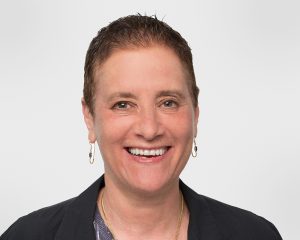
Helen Nissenbaum
Helen Nissenbaum is a Professor at Cornell Tech and in the Information Science Department at Cornell University. Her research takes an ethical perspectives on policy, law, science, and engineering relating to information technology, computing, digital media and data science. Topics have included privacy, trust, accountability, security, and values in technology design. Her books include Obfuscation: A User’s Guide for Privacy and Protest, with Finn Brunton (MIT Press, 2015) and Privacy in Context: Technology, Policy, and the Integrity of Social Life (Stanford, 2010). Grants from the NSF, AFOSR, and the U.S. DHHS-ONC have supported her work. Recipient of the 2014 Barwise Prize of the American Philosophical Association, Nissenbaum has contributed to privacy-enhancing software, including TrackMeNot and AdNauseam. Nissenbaum holds a Ph.D. in philosophy from Stanford University and a B.A. (Hons) in philosophy and mathematics from the University of the Witwatersrand, South Africa.

Katherine Pratt
Katherine Pratt received her BS in aerospace engineering from MIT in 2008, where she was awarded the MIT Women’s League Laya Weisner Award for public service to the university and the MIT Aero/Astro James Means Memorial Award for Space Systems Engineering. During college, she completed several internships with the private space venture Blue Origin, working in systems and propulsion engineering. After graduation, Katherine served four years in the United States Air Force, working primarily as an operational flight test engineer on the F-35 Joint Strike Fighter. Now, she is a PhD candidate in the BioRobotics Lab in the electrical engineering department at the University of Washington — focusing on the privacy, ethics, and policy of neural data.
Katherine is the recipient of a National Science Foundation Graduate Research Fellowship and previously interned with the ACLU of Washington through the Speech, Privacy, and Technology Project. From June through December 2018, she was the inaugural Congressional Innovation Fellow through Tech Congress, where she worked in the office of Congresswoman Suzan DelBene on technology policy. In addition to research, Katherine balances several extracurricular activities. She is passionate about getting younger students, especially girls and minorities, interested in science and technology. Katherine has served as treasurer, vice-president, and president of the University of Washington’s Husky Veterans student organization (a chapter of Student Veterans of America), and is the co-founder of the new 501(c)3 Minority Veterans of America. In her free time, Katherine competes in triathlons as a member of the Husky Triathlon Club and iracelikeagirl teams

Jennifer Rhee
Dr. Jennifer Rhee is an Associate Professor in the College of Humanities & Sciences at the Virginia Commonwealth University. She received her BA from Princeton University and completed he PhD at Duke University. Dr. Rhee’s research interests include literature, technology, and science; contemporary American literature; media studies; robotics and artificial intelligence; and digital art. Dr. RHee authored the book titled The Robotic Imaginary: The Human & the Price of Dehumanized Labor, where she traces provocative and productive connections of contemporary robots in technology, film, art, and literature. Centered around the twinned processes of anthropomorphization and dehumanization, she analyzes the coevolution of cultural and technological robots and artificial intelligence, arguing that it is through the conceptualization of the human and the dehumanized that these multiple spheres affect and transform each other.

Heather Roff
Heather M. Roff is a nonresident fellow in the Foreign Policy program at Brookings. Her research interests include the law, policy, and ethics of emerging military technologies, such as autonomous weapons, artificial intelligence, robotics, cybersecurity, and more recently quantum, as well as international security and human rights protection. Her recent work focuses on generating normative principles for the use of AI for national defense, as well as particular epistemological issues with AI for defense related applications. She is author of “Global Justice, Kant and the Responsibility to Protect” (Routledge 2013), as well as numerous scholarly articles.
Roff received her doctorate in political science from the University of Colorado at Boulder (2010). She is currently a senior research analyst at the Johns Hopkins Applied Physics Lab (APL) in the National Security Analysis Department. Prior to joining APL, she was a senior research scientist at DeepMind, one of the leading artificial intelligence companies, in their ethics & society team. Prior to DeepMind, she was a senior research fellow in the Department of Politics and International Relations at the University of Oxford; was a research scientist in the Global Security Initiative at Arizona State University; and held faculty positions at the Korbel School of International Studies at the University of Denver, the University of Waterloo, and the United States Air Force Academy. She has also held multiple fellowships at New America (2015-17).
She has provided expert testimony and advice regarding lethal autonomous weapons and artificial intelligence to the United Nations Convention on Certain Conventional Weapons and the International Committee of the Red Cross, as well as the United Nations Institute for Disarmament Research, the United Kingdom Ministry of Defense, the Canadian Department of National Defense, and the U.S. Department of Defense. Moreover, she has received funding awards from the Future of Life Foundation and the Canadian Department of National Defense for her work on meaningful human control, a concept generated with the disarmament NGO Article 36, that calls for structures and limits to the design, development, and deployment of autonomous technologies in armed conflict. “Meaningful human control” has sparked international attention from both scholars, practitioners, and industry.
She blogs for the Huffington Post, the Duck of Minerva, and has written for the Wired Magazine, Bulletin of the Atomic Scientists, Slate, Defense One, the Wall Street Journal, the National Post, and the Globe and Mail. She is currently working on various projects related to the ethics of artificial intelligence for national security and defense.
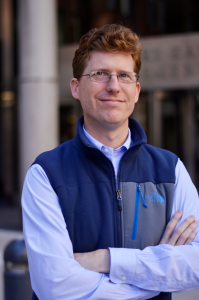
Robert Seamans
Robert Seamans, Ph.D. is an Associate Professor at New York University’s Stern School of Business. He recently completed a one year appointment as a Senior Economist at the White House Council of Economic Advisers where he worked on a wide range of policies relating to technology, innovation and entrepreneurship.
Professor Seamans’ research focuses on how technology and governance structures affect strategic interactions between firms, affect incentives to innovate, and ultimately shape market outcomes. Most of his research settings are industries characterized by multi-sided markets, including cable TV, credit cards, Internet, newspapers, and telecommunications industries. His research has received numerous awards, including a Junior Faculty Fellowship from the Kauffman Foundation that recognizes junior faculty who are making significant contributions to the fields of entrepreneurship and innovation. His research has been published in leading academic journals and been cited in numerous outlets including The Atlantic, Forbes, Harvard Business Review, The Wall Street Journal and others.
Professor Seamans received his B.A. in English from Reed College, his M.B.A. from the Yale School of Management, his M.A. in Economics from Boston University and his Ph.D. in Business Administration from the University of California, Berkeley.
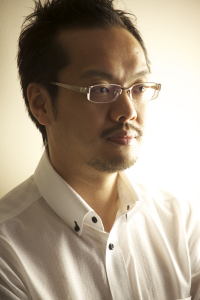
Fumio Shimpo
Dr. Fumio Shimpo is Professor of Faculty of Policy Management at Keio University. Ph.D in Law. Additionally, he is the Commissioner for International Academic Exchange at the Personal Information Protection Commission of Japan and the former vice-chair of the OECD Working Party on Security and Privacy in the Digital Economy (SPDE). The area of academic expertise is Constitutional Law, Cyber-Law and Robot Law.
Dr. Shimpo is also responsible for the Executive Director of the Japanese Constitutional Law Society, Executive Director of the Japan Society of Information and Communication Research, Director of the Law and Computer Society, Senior Research Fellow at the Institute for Information and Communications Policy of the Ministry of Internal Affairs and Communications.

Bill Smart
Dr. Bill Smart is a Professor of Mechanical Engineering at Oregon State University, where he has been since 2012. Dr. Smart holds a PhD in Computer Science from Brown University, a MSc in Intelligent Robotics from the University of Edinburgh and a BSc in Computer Science from the University of Dundee.
Dr. Smart does research in the areas of robotics and machine learning. In robotics, Smart is particularly interested in improving the interactions between people and robots; enabling robots to be self-sufficient for weeks and months at a time; and determining how they can be used as personal assistants for people with severe motor disabilities. In machine learning, Smart is interested in developing strategies for teaching robots to act effectively (or even optimally), based on long-term interactions with the world and given intermittent and at times incorrect feedback on their performance.

Alicia Solow-Niederman
Alicia Solow-Niederman is a Fellow in Artificial Intelligence, Law, and Policy for UCLA School of Law’s Program on Understanding Law, Science, and Evidence (PULSE). Her publications focuses on the ways in which emerging technologies such as AI interact with law and regulation as well as with political and social institutions and norms. Solow-Niederman’s work on data breaches was selected as a winner of the 2017 Yale Law Journal’s recent graduate essay competition on emerging legal problems and challenges in law and technology.
Solow-Niederman received her B.A. with Distinction in Communication and Political Science from Stanford University and was awarded the J.E. Wallace Sterling Award for Scholastic Achievement as one of the top 25 students in her graduating class. She earned her J.D. cum laude from Harvard Law School, where she was an editor of the Harvard Law Review (HLR) and served as Chair for the HLR Forum, the online compendium to the print edition.
Before attending law school, Solow-Niederman worked for three years as a project manager at the Berkman Klein Center for Internet & Society at Harvard University. Her project portfolio included the development of a tool to analyze the political economy of the online news ecosystem (Media Cloud), management of an initiative on student privacy and digital technology, and research on both information quality and mobile ad hoc networks. During law school, she served as a legal intern for the U.S. Department of Justice’s Office of Legal Policy and a summer associate at Jenner & Block in Washington, D.C.

Jay Stanley
Jay Stanley (@JayCStanley) is senior policy analyst with the ACLU Speech, Privacy, and Technology Project, where he researches, writes and speaks about technology-related privacy and civil liberties issues and their future. He is the editor of the ACLU’s Free Future blog and has authored and co-authored a variety of influential ACLU reports on privacy and technology topics. Before joining the ACLU, he was an analyst at the technology research firm Forrester, served as American politics editor of Facts on File’s World News Digest, and as national newswire editor at Medialink. He is a graduate of Williams College and holds an M.A. in American History from the University of Virginia.
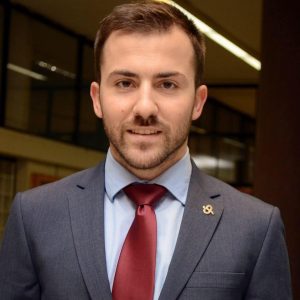
Petros Terzis
Petros Terzis is a full-time PhD student in the Centre for Information Rights at the University. of Winchester. He holds an LLB from the Aristotle University of Thessaloniki and an MSc. in Law and Economics from the University of Macedonia, Greece. He is a Research Associate at the Centre’s Higher Education Innovation Project workshop on law enforcement and machine learning. He is a member of the Research Board of the European Law Observatory on New Technologies (ELON) and a Research Assistant at Legal Utopia Inc.
Petros’s research mainly focusses on liability issues arising from the ‘actions’ undertaken by systems of AI. His research project ‘The reasonable coder: Reflections on liability from machine learning algorithms‘ is supervised by CIR Director Marion Oswald and Dr. Ben Sanders, Reader in Cyber Security & Computer Science and Head of the Department of Digital Futures.

Kristen Thomasen
Kristen Thomasen is one of the leading Canadian experts in robotics law and policy, specializing in drone regulation and the privacy impacts of robotic technologies. Kristen is an Assistant Professor in Law, Robotics and Society in the Faculty of Law at the University of Windsor in Ontario, Canada. She teaches Robotics Law & Policy and Tort Law. Kristen is completing her PhD in Law at the University of Ottawa. She previously clerked at the Supreme Court of Canada for the Honourable Justice Rosalie Abella and at the Alberta Court of Queen’s Bench. She is a member of the Law Society of Alberta.

Guy Van den Broeck
Guy Van den Broeck is an Assistant Professor and Saueli Fellow at UCLA, in the Computer Science Department. At UCLA, he directs the Statistical and Relational Artifical Intelligence (StarAI) lab. His research interests span
across Machine Learning (Statistical Relational Learning, Tractable Learning), Knowledge Representation and Reasoning (Graphical Models, Lifted Probabilistic Inference, Knowledge Compilation), Applications of Probabilistic Reasoning and Learning (Probabilistic Programming, Probabilistic Databases), and Artificial Intelligence generally. You can find his recent publications here.
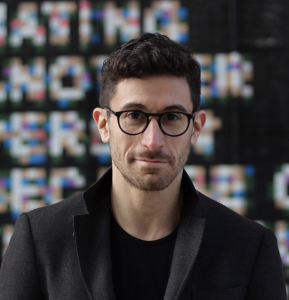
Ari Ezra Waldman
Ari Ezra Waldman is a Professor of Law and the Director of the Innovation Center for Law and Technology at NYLS. He is the Founder and Director of the Institute for CyberSafety, which includes the first-of-its-kind law school pro bono clinic representing victims of online harassment. He holds a Ph.D. from Columbia University, a J.D. from Harvard Law School, and a B.A. from Harvard College.
His research and writing focus on privacy, technology and society, hate and harassment on the Internet, and online social networks. His first book, Privacy As Trust: Information Law for an Information Age (Cambridge University Press, 2018), argues that privacy law should protect information disclosed in contexts of trust. Professor Waldman’s scholarship has been published in leading law reviews, including the Cornell Law Review Online, the Notre Dame Law Review Online, the Iowa Law Review, the Indiana Law Review, the Houston Law Review, the University of Miami Law Review, Hastings Law Journal, and the University of Maryland Law Review, to name a few.
In 2018, Professor Waldman was honored as the Deirdre G. Martin Memorial Lecturer on Privacy at the University of Ottawa. In 2017, he received the highest award in privacy law, the Best Paper Award at the Privacy Law Scholars Conference in Berkeley, CA. And in 2016, his scholarship was awarded the Otto L. Walter Distinguished Writing Award.
Professor Waldman has testified before the U.S. House of Representatives on issues relating to privacy and online social networks. His opinion pieces have appeared in the New York Times, the New York Daily News, The Advocate, among other popular press. He has appeared on Nightline, Good Morning America, MSNBC’s “The Docket,” and appeared as an expert on Syfy’s miniseries, The Internet Ruined My Life.

Jesse Woo
Jesse Woo is a Fulbright Scholar at Kyoto University in Japan. He also serves as a Visiting Researcher in the Graduate School of Law at Kyoto. Additionally, Jesse is a Committee Member of the IEEE Global Initiative for Ethical Considerations in Artificial Intelligence and Autonomous Systems. Prior to his work in Japan, Jesse was a Research Associate in Privacy and Cybersecurity at the Georgia Institute of Technology, where he focused on US/EU data flows and privacy, mutual legal assistance reform, smart cities and open data, drones, and robotics law and policy. His research focuses on such topics, including cross-border data and international privacy regimes, mutual legal assistance, and the foreign policy implications of AI.
